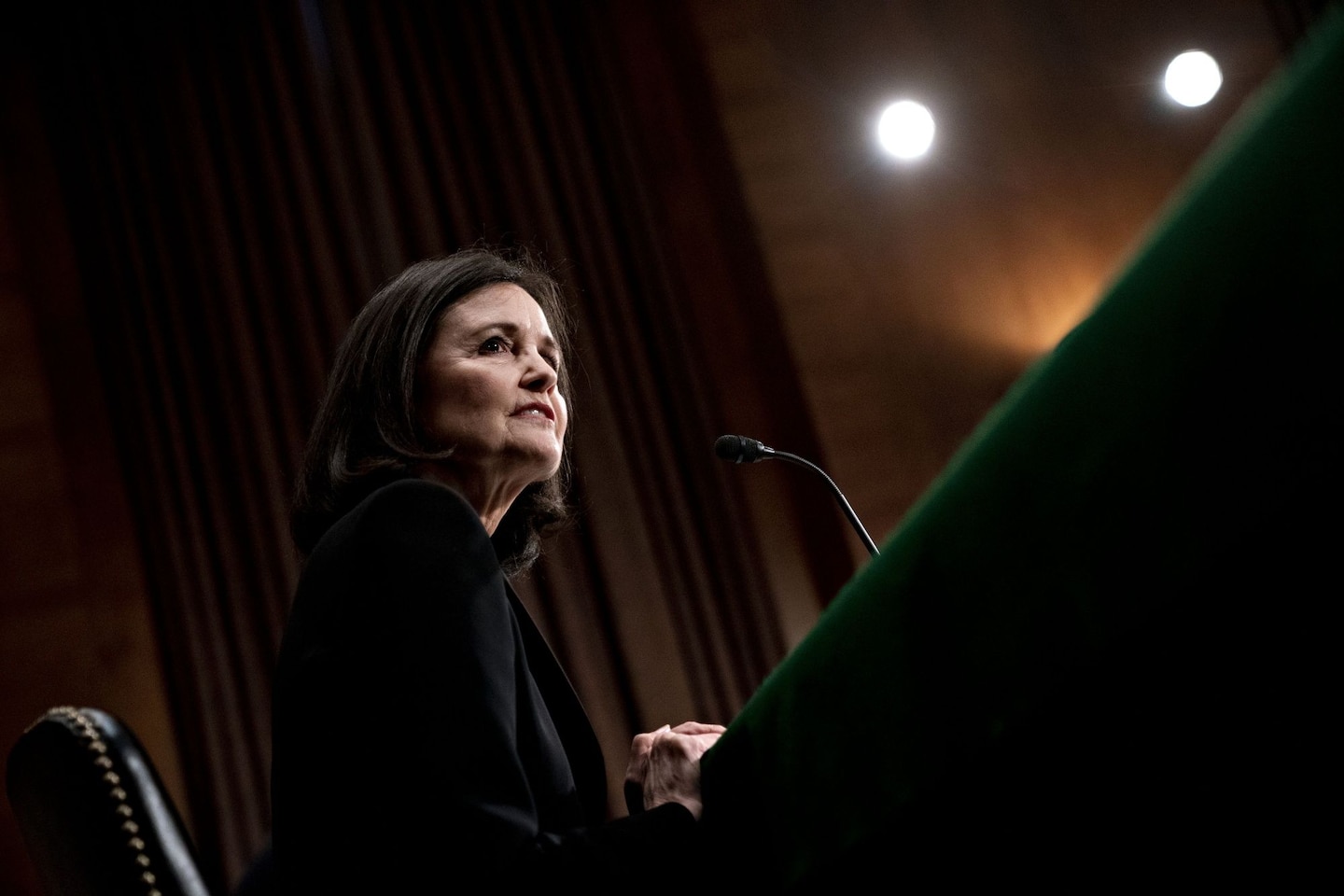Judy Shelton, Trump’s controversial pick for the Fed, expected to be approved by Senate banking panel this week

Opposition from one Republican on the committee would have been enough to derail Shelton’s nomination. After her confirmation hearing in February, her nomination looked like it was in trouble. Sen. Patrick J. Toomey (R-Pa.) said he was unsure whether Shelton could uphold the central bank’s independence. Sen. Richard C. Shelby (Ala.) said Shelton “could be an outlier” for the role. Both lawmakers have since said that they will vote to confirm her.
“I will not be the one to kill her nomination,” Shelby said in March. “I try to help the administration. I have some misgivings about her, I raised them in the Banking Committee. But if the other Republicans want her, I’d vote to confirm her.”
On Monday evening, a spokesperson for John Neely Kennedy (R-La.), another senator who had expressed concerns, said the lawmaker would also support the nomination, essentially guaranteeing full support among the 13 Republicans on the committee.
All 12 Democrats on the Senate Banking Committee staunchly opposed Shelton’s nomination from the start. Earlier this month, Democratic committee members called for another hearing so that Shelton could be pressed on the current economic crisis and how she would respond.
“We are now in an economic crisis worse than the one Dr. Shelton was asked about at her confirmation hearing,” the senators wrote to committee Chairman Mike Crapo (R-Idaho) after a vote date was announced. “Based on her answers at the hearing, we are deeply concerned that the situation we are in today would have been worse if Dr. Shelton were already sitting on the Board of Governors.”
In addition to criticizing the Fed for having too much power, Shelton has maintained that the country should link the U.S. dollar to gold, silver or some other benchmark so that its value fluctuates less. The gold standard was abandoned by American economists and policymakers decades ago.
Shelton also has advocated for closer connections between the central bank and the White House, despite the fact that the Fed stakes much of its reputation on being politically independent. Shelton was an adviser to Trump’s 2016 presidential bid and has said the Fed’s power over the economy needs to be reined in.
Shelton’s views have raised particular concerns among lawmakers and economists who argue that Trump has exerted extreme public pressure on the Fed in a way that undermines the central bank’s authority. Before the current crisis, Trump routinely attacked Fed Chair Jerome H. Powell for not doing enough to stimulate the economy. More recently, Trump dubbed Powell his “most improved player.”
The Fed’s ability to steer clear of the political fray has proved especially tricky during the pandemic. From mask-wearing to state reopenings, the country’s public health and economic response has become intertwined with partisan fanfare. Shelton’s nomination would add another layer of politics to the Fed’s efforts to steer the economy toward recovery.
The Fed board has been operating with two empty seats since several of President Trump’s previous picks, including business executive Herman Cain and conservative economist Stephen Moore, failed to rally enough support and withdrew over a series of personal incidents.
On Tuesday, the Senate Banking Committee also will vote on the nomination of Christopher J. Waller, a St. Louis Fed economist. Waller’s nomination has been far less controversial.
If approved by the Senate, Shelton would fill a slot on the Fed’s seven-seat board. But there is wide speculation that if Trump is reelected in November, he would decide against renominating Powell when the chair’s term expires in 2022. If Shelton replaces Powell, her critics say, she could harness much more power over the country’s economy.
David Wilcox, former director of the Fed’s Division of Research and Statistics, said he worried that Shelton’s skepticism of the importance of the Fed as an independent body would cause her to view a board seat as “an integrated part of the president’s economic apparatus.”
“With a more senior position would come a much wider capacity for inflicting damage on the institution, and more importantly, on the functioning of the American economy and financial system,” Wilcox said.
Still, some describe Shelton’s views as a healthy dose of balance at the Fed. Moore, an economic adviser to the White House whose nomination was highly criticized because of his writings and comments against women and gender equity, said Shelton’s nomination should never have become so politicized.
“Judy is certainly well qualified,” Moore told The Washington Post. “It’s healthy to have someone with Judy’s philosophical orientation on the Fed. Whether you agree with her or not, the important thing is to have a variety of opinions. You need people to question what the chairman is doing.”
Heather Long contributed to this report.






